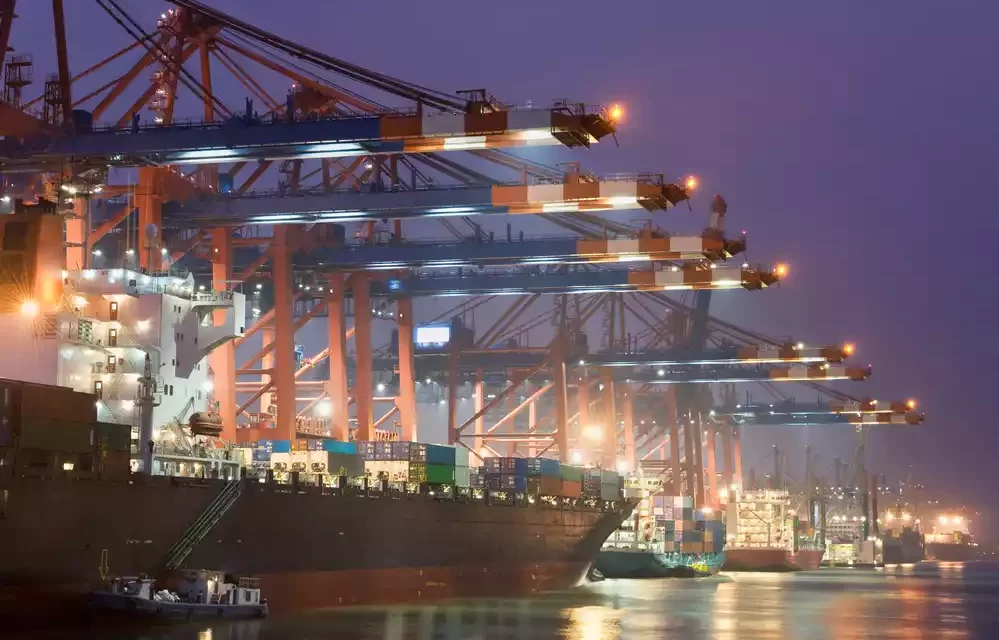Circular
Servirio`s News
POLITICAL, ECONOMIC AND SOCIAL RISKS THREATEN THE PRODUCTIVITY OF LATIN AMERICAN PORTS

Report identifies political conflict, legal uncertainty and corruption among these risks
Globally, trade transported by sea represents almost 90% of the volume of goods, therefore, those cities with large ports are considered global logistics nodes in economic matters.
With all the benefits that this implies for a country, as a result of its transcendental strategic character, port infrastructure is considered a vulnerable facility, since any attack has a direct impact on the local and logistic level and on the global supply chain.
In July 2023, the Spanish security company, Prosegur, published its report “Security in Latin American port infrastructures”, in which it explains the different threats to which Latin American ports are exposed.
The report defines as threats to the port everything that can affect the security of people, infrastructure, assets and values, data and information, image and reputation. Political and economic risks, as well as social risks, are among the most important.
Political and economic risks
External conflicts: As a result of the type of activity they carry out, it is inevitable that the productivity of ports will be strongly affected by inter-state conflicts, especially between the country managing a port and the country from which ships or goods originate.
War conflicts, even when no country in the region is directly involved, also have an impact on its ports. A clear example is the conflict between Russia and Ukraine, which has hit with the rise of prices in several products, as well as maritime transits and the activity of Latin American ports.
In this regard, the report notes that since 2022 many shipping lines have warned of the accumulation of containers in the ports and the damage caused to perishable goods, generating severe economic losses for companies and crises of shortages and shortages of certain products.
When observing the trade war between China and the United States, Latin American ports are seen as strategic points, and while this may have a positive impact on infrastructure development, at the same time it has negative implications on operability. In addition, due to the competition between the two superpowers, there is a possibility that governments may impose interventionist measures that restrict port activity.
Internal conflicts: In the event of unrest, protests or civil wars, national ports are one of the main targets, because strategically they provide military advantage, the blockage of which implies a strong economic damage.
This is the case of Peru where, in the context of the political and social crisis, the main supply routes were blocked, the operation of the port infrastructure was strongly affected causing alterations in the loading and unloading of goods.
On the other hand, the legal insecurity and excessive legal volatility surrounding port activity in Latin America can be a disincentive for companies to operate under this jurisdiction, leading to a reduction in productivity and causing economic damage to countries, especially those that are politically unstable, as is the case of Ecuador and Peru.
The report also highlights corruption as a dual threat, differentiating between “corruption that directly affects the managers of port facilities and leads, to a large extent, to legal uncertainty; and corruption related to money laundering activities that take place around port activities and that are often related to smuggling”. Unfortunately, Latin American ports stand out worldwide for the extensive activity of criminal organizations.
According to the Corruption Perceptions Index (CPI), with the exception of Chile, Uruguay and Costa Rica, Latin American countries have a high incidence of corruption.
Social Risks
Activism is the main social threat to port operations. Countries such as Peru, Ecuador, Colombia and Brazil have seen their port activities paralyzed by anti-government social uprisings in the last decade. The blockade causes traffic cuts that limit the arrival of trucks with cargo.
In addition, in Latin America there is a high level of labor unrest in the land transportation sector. Strikes by carriers and stevedores are the events that can have the greatest impact on port activity. For example, in April 2023 the Sindicato Único de Fleteros de la República Argentina (Siunfletra) carried out indefinite strikes in different ports, causing losses of more than 100 million pesos per day.
In addition, inevitably, due to their international connections, ports are one of the main avenues for irregular migration. Exhaustive security checks and surveillance by the authorities hamper port activity, slowing down all processes.


